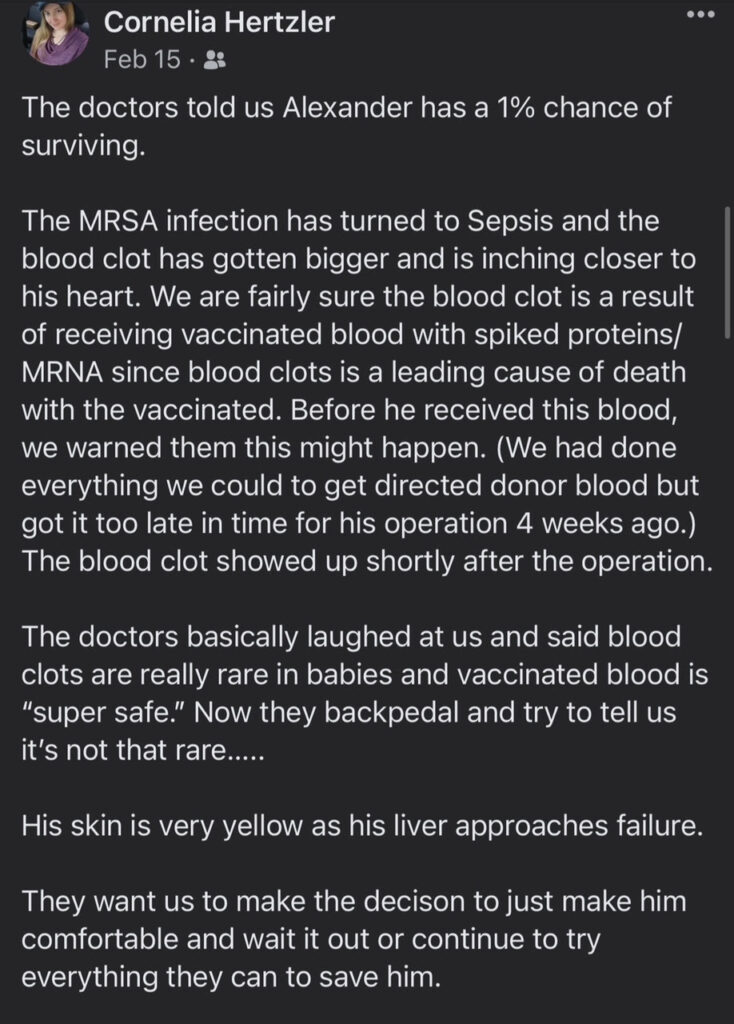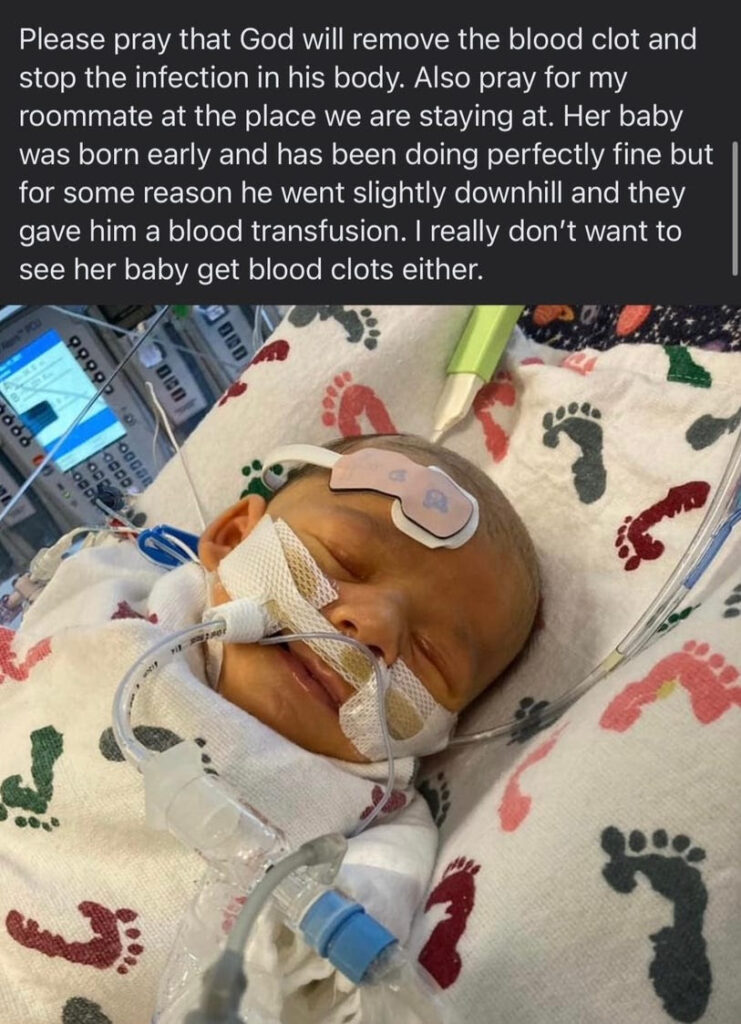OPINION
Steve Kirsch
Executive Director, Vaccine Safety Research Foundation (vacsafety.org)
The court has entrusted two doctors with the medical decisions regarding the care of Baby W. The 23-page court decision is available here for you to read.
I’ve written about this case in earlier posts: The Baby W Story and Dr. Ryan Cole on whether the blood supply is safe: “We don’t know.”
The court has now rendered a verdict against the parents.
In a 23-page decision, a New Zealand court has ruled that it will take custody of Baby W in order to ensure his welfare and best interests.
Here’s the story in CNN, ABC Australia, The Guardian, and The New York Times.
The key arguments made by the hospital:
- NZBS manages the donation, collection, processing and supply of blood and controlled human substances in New Zealand. Any request for directed donation can be made only by the specialist doctor or surgeon undertaking the procedure to the local transfusion medicine specialist.
- The clinicians responsible for the surgery determined that there was insufficient evidence to make a special request.
- The hospital cannot compel the NZBS to do what it says, e.g., even if the doctors agreed with the parents, NZBS can still refuse to supply the blood if it doesn’t think the request is justified.
- Vaccines using mRNA technology “to date remain safe.”
- The clinicians conveyed that their careful review of the data had not convinced them that they should, or could, recommend an unvaccinated blood transfusion. In particular:
Dr Finucane noted that Baby W is almost undoubtedly going to require albumin and other plasma products during his post-operative course, and these products are formed from the pooling of various donors. She says it is simply impractical to have a directed donor for these products.
The parents’ argument:
- Baby W’s mother says that spike protein will be present in the blood of those who receive the vaccine – the only question is how much will be present and for how long. She says their concerns have been dismissed by Dr Finucane by labelling the parents as conspiracy theorists without addressing their concerns. She says that Dr Finucane claims no expertise about the Pfizer vaccine or residues in that vaccine and provides no evidence to justify her opinion.
- Baby W’s mother is also concerned that another baby who received blood from NZBS for a heart operation has been coughing up blood clots. She is concerned this may be associated with spike protein or other contamination in the blood.
- The mRNA vaccine is not safe.
- Dr. Bridle recommends the precautionary principle, that an action should not be taken if there are legitimate scientific questions about the impact of the action. In this regard, Ms Grey (attorney for the parents) submitted that Baby W’s clinicians and NZBS should be looking for proof of safety, not proof of harm.
The two issues are:
- whether the clinicians’ proposed use of NZBS blood products is safe;
- whether the parents’ proposed use of directed blood is a safe and viable alternative.
The key points I believe were in these two paragraphs:
- [32] Further, judicial review is focused on the lawfulness of decisions. The fact that Te Toka Tumai cannot require NZBS to provide directed blood against NZBS’ clinical judgment exposes a further difficulty with the order sought against NZBS. In Shortland v Northland Health Ltd, 6 the Court of Appeal held that a clinical decision could not be unlawful if it was made in good faith and in accordance with good medical practice.
- [33] Despite Ms Grey’s characterisation of NZBS’ refusal to agree to directed donor blood and criticism of its approach to informed consent, there can be no doubt that NZBS has exercised its clinical judgment in good faith. Subject to considering the evidence as to whether that clinical decision was in accordance with good medical practice, which I will address below, it is not a clinical decision that is amenable to review by the Court.
The court, lacking the legal and technical ability to second guess the doctors, therefore sided with the expert opinion of the doctors.
Baby Alex’s records are expunged from the hospital
Another baby, Baby Alex, received a transfusion of vaccinated blood and got blood clots and died. Providence Sacred Heart Medical Center in Spokane, Washington has removed all records of this case.
This is how the officials in New Zealand can testify that there is no evidence of harm… because that evidence is expunged.
Here’s a post from his mother before her son died. Her post is telling about how the experts changed their story AFTER her son started getting blood clots.


Summary
It appears to me based on a relatively quick reading of the decision, that the court made the “right” legal decision where “right” means in accordance with New Zealand law.
I don’t know enough about the issues regarding blood products to have an opinion on the practicality of donor blood in this situation, so I will abstain from an opinion on this.
However, it is clear to me that it is a tragedy that information on clots following previous transfusions is being buried (such as hospital records being deleted in the case of Baby Alex).
Had this data not been expunged, it could have changed the outcome in this case.
Unfortunately, many more innocent children will have to die before the medical community starts speaking out.
Your opinion?
UPDATED: Why can’t we talk about it?
I just updated my very popular “Why can’t we talk about it?” article to define what I mean by “it.” It’s now the pinned article.
I think you’ll find the new section, with over 50 examples of “it”, to be terrific “conversation starters” with your blue-pilled friends :)

